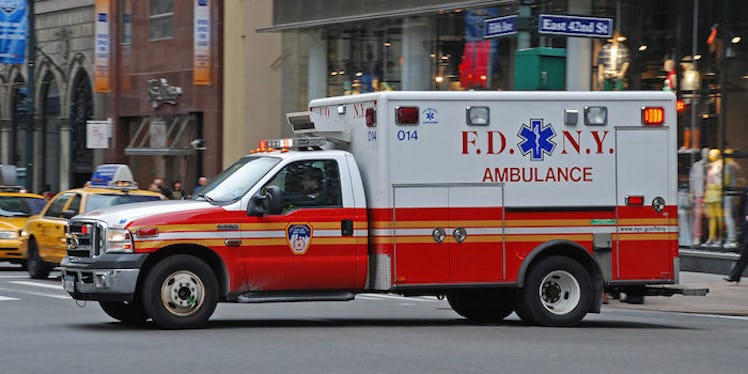In the event of an emergency, it might make more sense for Uber users to summon the ride-sharing service rather than an ambulance.
Each minute that goes by during a medical emergency is crucial, and New York statistics show that Uber drivers respond to calls much faster than paramedics.
It takes an ambulance about 6.1 minutes to reach a caller in Manhattan, according to Minqi Jiang on Medium, and that doesn't even incorporate how long it takes for the victim to reach a 911 operator and communicate the emergency.
Uber users, on the other hand, have to wait just an average of 2.42 minutes to receive a car in Manhattan and 3.1 minutes in one of the other boroughs.
They also only need to push a button to call a car instead of verbally explaining the emergency situation.
But it seems the main reason ambulances are so much slower is the complexity of New York's 911 dispatch system, which involves a multi-person chain of command that filters calls to the police, fire department or paramedics.
The difference of three minutes between an ambulance and an Uber could mean life or death.
If the victim is having a heart attack, Jiang reports, that person's chances of surviving decreases between 7 and 10 percent for each minute he or she goes without defribillation.
Even the tiniest loss of time cannot be afforded in such situations, considering the survival rate of Sudden Cardiac Arrest (SCA) is already less than 5 percent to begin with.
The patient's chances of survival go up 75 percent, however, should a defribillator be administered just a minute or so into a heart attack.
This is why Uber drivers may soon be required to undergo CPR and defribillator training courses and equip their vehicles with one such device.
The training amounts to just four hours, which is a relatively small sacrifice for the millions of lives these requirements could save.
Jiang suggests that Uber drivers additionally have sirens on their cars, making the wait time even lower.
Heart attacks could just be one of many medical emergencies halted by the drivers, largely because vital tools like EpiPens and inhalers can be used without medical training.
Such will be the case with more and more equipment over the years, all of which should unquestionably be in the hands of the people who can move around the fastest.
Citations: How the company changing the way we travel can change the way we save lives (Medium)
